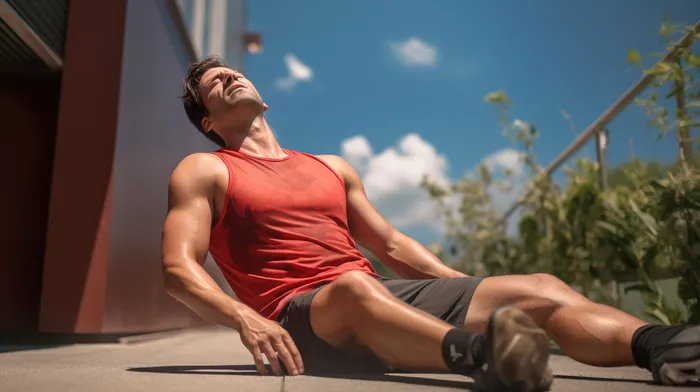Summertime is when we often engage in more outdoor activities like jogging, swimming, playing ball, biking, and more. But during the warmer months, you need to be aware of the most deadly type of wave, and it isn’t a tsunami – it’s a heatwave.
When you’re outdoors exercising, it’s important to keep an eye on the temperature and humidity when planning your activities. When both the temperature and humidity are high, your body struggles to cool down, which can be dangerous as you age.
Researchers at Penn State reveal that heat can strain your heart at any age, but the effect is magnified as you grow older. As W. Larry Kenney, who teaches physiology and kinesiology, says, “If you exercise vigorously in the heat, the strain is even greater (as you age). And, if you have heart disease and exercise vigorously in the heat, you may be in a dangerous situation.” He further adds that heatwaves kill more people annually than tornadoes, hurricanes, or volcanoes.
Moreover, if you’re over 65 years old, you are at least ten times more likely to die during a heatwave than a younger person. Your body pumps more blood to the skin to radiate heat in order to deal with high temperatures. However, Kenney’s studies show that when you’re older, even if you’re physically fit, your body is less efficient at this process, making the heart work harder to keep you cool.
While exercising can make the temperature regulatory system better, it cannot make it young again. To stay safe during extremely hot weather and while exercising in the summer heat, follow these tips:
Gradual acclimatization
Don’t push yourself too hard during the first few hot days. Most heat illnesses occur during the first few exercise sessions on warmer days.
Hydration
Drink more water than you think necessary. If you’re not thirsty but you’re drinking plenty of fluids, it’s a good indication that you’re properly hydrated.
Common sense
If you think it feels too hot to exercise, it probably is. Listen to your body and be sensible about exposing yourself to extreme heat.
Medication and illness
If you’re on prescription medication or have a chronic illness like heart disease or diabetes, talk to your healthcare practitioner or pharmacist about how it may affect your ability to exercise in the heat. Many medications and health conditions can increase the difficulty of exercising in hot conditions.
Know when to stop
If you’re feeling too hot while exercising, stop immediately and allow your body’s cooling system to catch up. Seek help if you think you’re experiencing heat-related illness.
In conclusion, it’s essential to be cautious during the hotter months, especially as you age. Taking these precautions will ensure you can enjoy outdoor activities and stay healthy while doing so.



